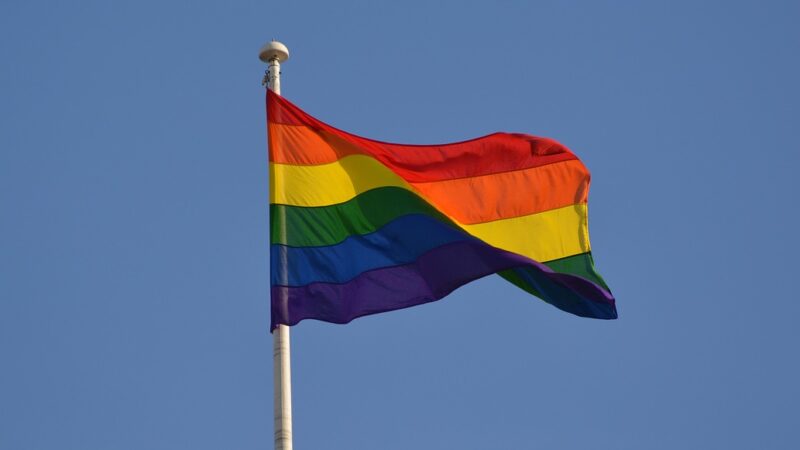Alabama committee advances ban on LGBTQ+ pride flags in classrooms
MONTGOMERY, Ala. (AP) — Alabama lawmakers advanced a bill Wednesday that would ban teachers from displaying LGBTQ+ pride flags on public school property and extend the state’s ban on teacher-led discussions about sexual orientation and gender identity.
The Senate Education Policy Committee voted 5-2 for the House-passed bill, putting the proposal in line for a possible final passage in the last four days of the legislative session. The bill, which now moves to the full Alabama Senate, is part of a wave of legislation across the country that critics have dubbed “Don’t Say Gay” laws.
The legislation would expand current Alabama law, which prohibits instruction on sexual orientation and gender identity in elementary school, to take the ban through the eighth grade. It would also ban teachers and school employees from displaying pride flags or similar symbols of sexual or gender identity “in a classroom or on the property of a public K-12 school.” Students could display the symbols, but teachers could not.
“We’re trying to keep the teacher from doing it because that’s indoctrination,” bill sponsor Rep. Mack Butler, a Republican, told the committee. “We just want to let children be children.”
Opponents questioned the constitutionality of the proposed ban on pride flags and said the bill sends a message to LGBTQ+ families, students and teachers that they do not belong in the state.
Sen. Rodger Smitherman, a member of the committee, said he thought the ban would be found unconstitutional.
“You cannot take a bumper sticker off of somebody’s car because it says that, and not take a bumper sticker that has got Auburn or Alabama on it. You can’t do that. The law won’t let you do it,” said Smitherman, a Democrat from Birmingham.
Butler said the intent is to prevent pride flags from being displayed in classrooms and wouldn’t impact bumper stickers. But at least one committee member noted the bill said the prohibition extended to the “property” of a public school.
“LGBTQ children and families cannot be legislated out of existence, but they can be harmed. Trying to deny they exist all the way through eighth grade harms not only them, but all students,” Susan Stewart of Huntsville told the committee during a public hearing.
Florida reached a settlement last month with civil rights attorneys who had challenged a similar law in that state. The settlement clarifies that the Florida law does not prohibit mention of LGBTQ+ people or the existence of Gay-Straight Alliance groups and doesn’t apply to library books that aren’t being used for instruction in the classroom.
The Florida law became the template for other states. Alabama, Arkansas, Indiana, Iowa, Kentucky and North Carolina followed with similar measures.
US military used laser to take down Border Protection drone, lawmakers say
The U.S. military used a laser to shoot down a Customs and Border Protection drone, members of Congress said Thursday, and the Federal Aviation Administration responded by closing more airspace near El Paso, Texas.
Deadline looms as Anthropic rejects Pentagon demands it remove AI safeguards
The Defense Department has been feuding with Anthropic over military uses of its artificial intelligence tools. At stake are hundreds of millions of dollars in contracts and access to some of the most advanced AI on the planet.
Pakistan’s defense minister says that there is now ‘open war’ with Afghanistan after latest strikes
Pakistan's defense minister said that his country ran out of "patience" and considers that there is now an "open war" with Afghanistan, after both countries launched strikes following an Afghan cross-border attack.
Hillary Clinton calls House Oversight questioning ‘repetitive’ in 6 hour deposition
In more than seven hours behind closed doors, former Secretary of State Hillary Clinton answered questions from the House Oversight Committee as it investigates Jeffrey Epstein.
Chicagoans pay respects to Jesse Jackson as cross-country memorial services begin
Memorial services for the Rev. Jesse Jackson Sr. to honor his long civil rights legacy begin in Chicago. Events will also take place in Washington, D.C., and South Carolina, where he was born and began his activism.
In reversal, Warner Bros. jilts Netflix for Paramount
Warner Bros. says Paramount's sweetened bid to buy the whole company is "superior" to an $83 billion deal it struck with Netflix for just its streaming services, studios, and intellectual property.







